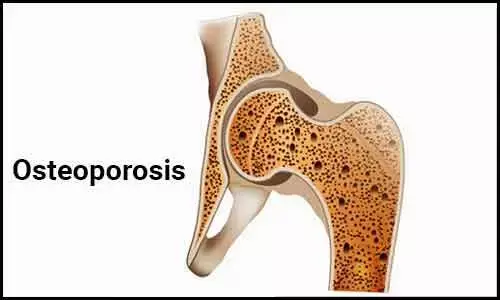- Home
- Medical news & Guidelines
- Anesthesiology
- Cardiology and CTVS
- Critical Care
- Dentistry
- Dermatology
- Diabetes and Endocrinology
- ENT
- Gastroenterology
- Medicine
- Nephrology
- Neurology
- Obstretics-Gynaecology
- Oncology
- Ophthalmology
- Orthopaedics
- Pediatrics-Neonatology
- Psychiatry
- Pulmonology
- Radiology
- Surgery
- Urology
- Laboratory Medicine
- Diet
- Nursing
- Paramedical
- Physiotherapy
- Health news
- Fact Check
- Bone Health Fact Check
- Brain Health Fact Check
- Cancer Related Fact Check
- Child Care Fact Check
- Dental and oral health fact check
- Diabetes and metabolic health fact check
- Diet and Nutrition Fact Check
- Eye and ENT Care Fact Check
- Fitness fact check
- Gut health fact check
- Heart health fact check
- Kidney health fact check
- Medical education fact check
- Men's health fact check
- Respiratory fact check
- Skin and hair care fact check
- Vaccine and Immunization fact check
- Women's health fact check
- AYUSH
- State News
- Andaman and Nicobar Islands
- Andhra Pradesh
- Arunachal Pradesh
- Assam
- Bihar
- Chandigarh
- Chattisgarh
- Dadra and Nagar Haveli
- Daman and Diu
- Delhi
- Goa
- Gujarat
- Haryana
- Himachal Pradesh
- Jammu & Kashmir
- Jharkhand
- Karnataka
- Kerala
- Ladakh
- Lakshadweep
- Madhya Pradesh
- Maharashtra
- Manipur
- Meghalaya
- Mizoram
- Nagaland
- Odisha
- Puducherry
- Punjab
- Rajasthan
- Sikkim
- Tamil Nadu
- Telangana
- Tripura
- Uttar Pradesh
- Uttrakhand
- West Bengal
- Medical Education
- Industry
Joint guidance of experts on managing osteoporosis in the COVID-19 era

The Endocrine Society joined a coalition of leading bone health organizations to release guidance for healthcare professionals treating patients with osteoporosis in the era of COVID-19.
The guidelines address the challenges that social distancing has presented for treating patients with osteoporosis, including those who receive treatment through injection or intravenous (IV) delivery of drugs. It also provides guidance on how some patients may be transitioned to alternative therapies until they are able to resume their original treatment.
"We are proud to be part of this coalition, led by American Society for Bone and Mineral Research, of healthcare providers working together to ensure patients with osteoporosis receive the care they need during such uncertain times," said Endocrine Society President Gary D. Hammer, M.D., Ph.D. "We hope these recommendations offer clear guidance for clinicians who are determined to reduce their patients' risk of fracture."
Worldwide, osteoporosis causes more than 8.9 million fractures annually, resulting in an osteoporotic fracture every 3 seconds. In the United States, 10.2 million women and men age 50 and above have osteoporosis and 43.4 million Americans over 50 have low bone mass and are at a higher risk of fracture.
With social distancing mandates in place across the nation, many patients are avoiding treatment, and testing and diagnoses are delayed.
"The scale of the COVID-19 pandemic is unprecedented. There is a paucity of data to provide clear guidance for healthcare professionals on how to adjust treatment for these patients to oral bisphosphonates," said incoming American Society for Bone and Mineral Research (ASBMR) President Suzanne Jan De Beur, M.D., who is also a member of the Endocrine Society. "These recommendations and the supporting evidence provide a roadmap to clinicians and their patients."
When possible, patients should continue their prescribed osteoporosis regimens. Specific recommendations for patients who are unable to receive their next dosage of non-oral osteoporosis medications during the COVID-19 pandemic include:
For patients who are taking denosumab (Prolia®), experts recommend considering a delay in treatment. If the delay exceeds 1 month (i.e. is 7 months from the most recent prior injection), consider temporary transition to oral bisphosphonate.
For patients who are taking teriparatide (Forteo®) or abaloparatide (Tymlos®), or romosozumab (Evenity®), experts recommend considering a delay in treatment. If the delay exceeds 3 months, consider temporary transition to oral bisphosphonate.
For patients who are on IV bisphosphonates, delays of even several months are unlikely to be harmful.
Membership for this coalition includes ASBMR, the Endocrine Society, the American Association of Clinical Endocrinologists (AACE), and the European Calcified Tissue Society (ECTS).
Hina Zahid Joined Medical Dialogue in 2017 with a passion to work as a Reporter. She coordinates with various national and international journals and association and covers all the stories related to Medical guidelines, Medical Journals, rare medical surgeries as well as all the updates in the medical field. Email: editorial@medicaldialogues.in. Contact no. 011-43720751
Dr Kamal Kant Kohli-MBBS, DTCD- a chest specialist with more than 30 years of practice and a flair for writing clinical articles, Dr Kamal Kant Kohli joined Medical Dialogues as a Chief Editor of Medical News. Besides writing articles, as an editor, he proofreads and verifies all the medical content published on Medical Dialogues including those coming from journals, studies,medical conferences,guidelines etc. Email: drkohli@medicaldialogues.in. Contact no. 011-43720751


